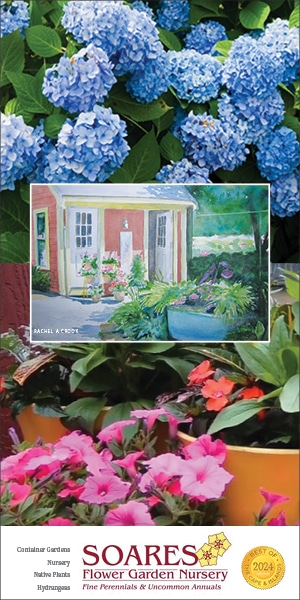
Next Wave: Jen & Nick Crawford, Jenick Studio
Cape Cod Home / Summer 2020 / People & Businesses
Writer: Brenna Collins
Next Wave: Jen & Nick Crawford, Jenick Studio

Cape Cod Home / Summer 2020 / People & Businesses
Writer: Brenna Collins
Nick and Jen Crawford, two ‘washashores’ from the Midwest, bring their kindred care for wildlife conservation into their two meaningful businesses on Cape Cod. The pair met working for the same ecological company in Orleans, and after getting married in 2014, decided to start their own ventures. Jenick Studio, a landscape architecture firm, and Crawford Land Management, an ecological restoration firm, function side by side to enhance and protect the Cape’s distinct, beloved landscapes.
CCH: How did you know you wanted to pursue your respective careers?
JC: We run two companies side by side. I knew I wanted to pursue landscape architecture when I did my undergraduate degree in horticulture and took an introduction to landscape design course. I knew when I discovered that there was something that combined my love of plants and science in an artistic way. I grew up on a dairy farm, so I love being around wildlife and having respect for nature.
NC: The other side is Crawford Land Management. We do ecological restoration, coastal stabilization work, and conservation permitting. I started school for landscape architecture, but instead moved to northern Minnesota and went to a school that focused on forestry and wildlife. I lived on the edge of 2 million acres of wilderness up there by Canada. I finished school in Vermont at Green Mountain College and then ended up here for work.
CCH: You aim to benefit both human health and local ecology, could you tell me more about that?
JC: Nick and I are on the same page regarding ecology, permitting, and design work. We both work on both sides of the company. With landscape architecture, even though we’re designing landscapes that are near and dear to humans, we try to utilize native plants and bring that local ecology right up to people’s front door. We figure that people are buying properties on Cape Cod because they love the Cape’s landscape and appreciate its uniqueness. We design naturalized landscapes that become low maintenance and benefit humans by not needing large inputs of maintenance, fertilizers, and water.
CCH: What is it that you value about the Cape’s natural landscape that you try to bring forward in your work?
NC: We try to take cues from the existing natural landscape to see what historically has grown there or what would be appropriate to grow based on what species are there or used to be there. We try to incorporate that into the restoration and landscape architecture. Often, people buy property here, clear the lot, and try to put it all back together when it’s done. We try to get people to realize that they love the Cape because of the way it looks, so why get rid of that. Let’s use as much of the natural landscape as possible and expand upon that to make it feel like a natural Cape Cod setting.
CCH: Do you have any favorite standout projects you have done?
JC: We did a project for the Chatham Conservation Foundation that was full of invasive species and it turned out really beautiful. We also had a project for a condominium association in Brewster. For 20 years, they had been trying to keep views and get the invasive species under control, but the way it had been done wasn’t aesthetically pleasing. In two years, we turned it around into these beautiful beginnings of native sandplain grassland and heathland areas.
NC: We also just restored the entire coastal bank at Chatham Bars Inn. On another project in Eastham, the homeowners got in touch with us before they purchased land. We worked with them through the permitting and design process, restored the whole property to naturalized area, and then they designed the house around the views. That’s ideal because we don’t have to do additional disturbance to achieve goals.
CCH: Where would you like to see the future of landscape architecture go on the Cape?
NC: We’d like to see not only homeowners, but contractors, towns and municipalities practicing what we’re supposed to be preaching. Lots of town buildings are still landscaped with invasive species. In the future, it would be nice to move towards a more sustainable landscape as a whole, and get away from planting invasive or aggressive species and having to control them.
CCH: What advice would you give to young professionals looking to succeed on the Cape?
JC: First, if you have toyed with starting your own business, but you’re on the fence, just go ahead and take the leap. The other thing is, especially if people are not from the Cape, don’t wait for life to find you. Seek it out. There are so many young people here and you’ll find that you can form friendships easily. It’s a close-knit community, and you have to insert yourself in it in order to enjoy it. Seek it out; it’s easy to find if you look for it.
Visit Jen and Nick online at jenickstudio.com and crawfordlm.com!



